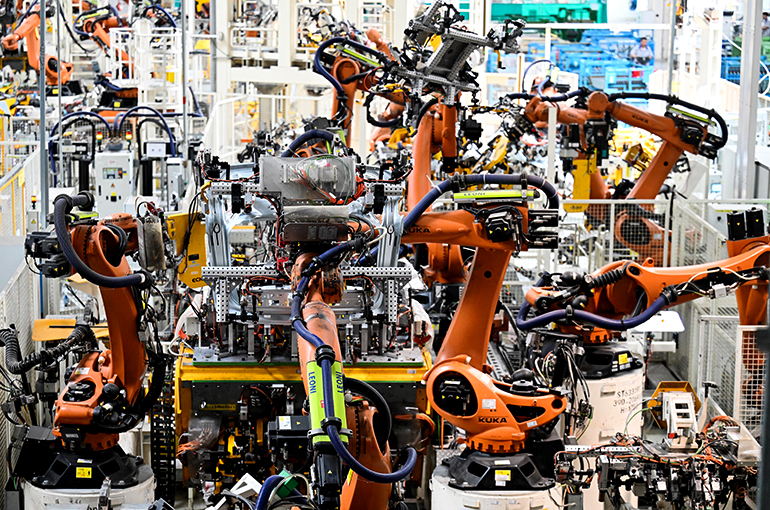 China’s Machinery Sector Logs Strong Growth in First Half; Outlook Remains Positive, Insiders Say
China’s Machinery Sector Logs Strong Growth in First Half; Outlook Remains Positive, Insiders Say(Yicai) Aug. 4 -- China's machinery industry achieved solid growth in revenue and profit in the first six months despite ongoing challenges such as weak demand and slow payments and this positive momentum is expected to continue in the second half, industry insiders said.
Revenue among industrial enterprises above a designated size jumped 7.8 percent in the six months ended June 30 from a year ago to CNY15.3 trillion (USD2.1 trillion), according to the latest data. While total industry profits surged 9.4 percent to CNY791.2 billion (USD110.2 billion), beating the national industrial average by 11.2 percentage points.
In the first half, the value added of large-scale machinery companies soared 9 percent from a year earlier, Luo Junjie, vice president and spokesperson of the China Machinery Industry Federation, said at a press conference today. This is 2.6 percentage points higher than industrial growth over the period and 2 percentage points more than manufacturing growth.
Of the 122 key products monitored, 68.9 percent, or 84 products, logged an increase in output from the year before. This is an improvement of 7.4 percentage point year on year.
However, the industry still faces challenges. Around two-thirds of companies reported a lack of orders, with a slowdown in existing orders, fewer long-term deals and a drop in export demand. The ex-factory price of machinery products has tumbled for 29 months in a row, squeezing profit margins. Prices slumped 2 percent in June from a year earlier and in March, April and May they fell 2.1 percent.
US trade protectionist policies have disrupted global trade and supply chains since the beginning of the year, and uncertainty surrounding US tariffs remains high, Luo said. These overlapping factors are putting complex pressure on China’s machinery exports. However, overall, the opportunities outweigh the risks, he said.
In the second half, the machinery industry should focus on technology-driven innovation, accelerating upgrades and pushing ahead with high-end, intelligent, green and integrated development, Luo said. He called for stronger industry self-discipline and steady progress in new industrialization, so as to enhance the resilience and security of industrial supply chains.
Editor: Kim Taylor